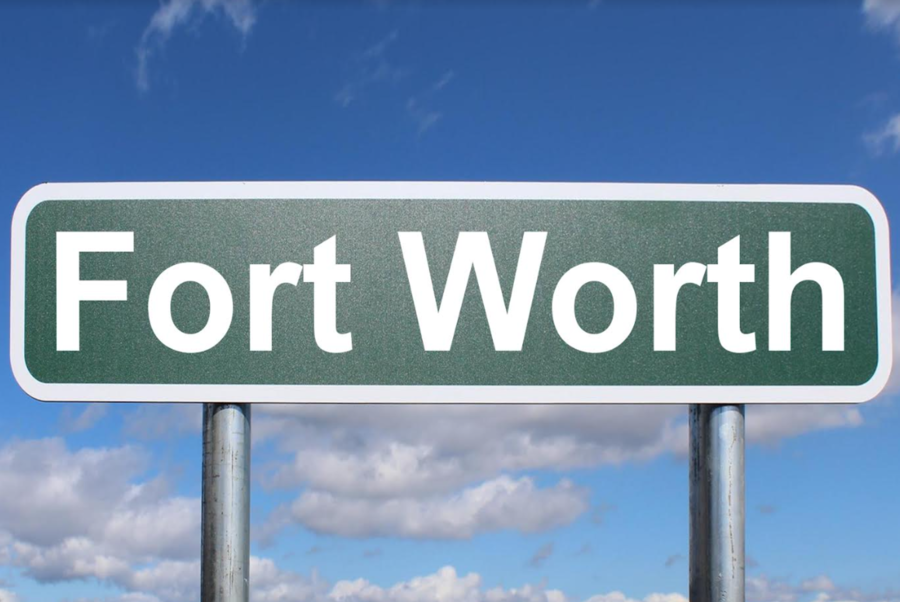Haltom City faces similar struggle, with outdated zoning regulations and city leaders who dismiss the voices of the local business community.
HALTOM CITY, TX, February 09, 2024 /24-7PressRelease/ — Redevelopment of the once-vibrant Fort Worth Southside has been mired in the planning stages for more than two decades. Older residents who were once enthusiastic about the prospect of a fresh, new neighborhood have packed up and left town, weary of waiting for change.
Longtime Southside residents Johnny and Shirley Lewis lived in the neighborhood for 50 years and were instrumental in the original development plans. In 1997, Shirley was head of the Near Southeast Community Development Corporation, the nonprofit organization that hatched a 113-page vision plan to redevelop the area. It seemed that progress was finally underway, with plans for a public health center, cultural park and retail shops. Fast-forward to today, and nothing much has been done to renovate the area.
There’s plenty of blame to go around, and some believe the city of Fort Worth could have been more supportive and responsive in the efforts.
This might sound familiar to residents and business leaders of Haltom City, who have tried to get city leadership on board with much-needed redevelopment plans for years.
“A key component for success in such a plan is to get the business community invested in it,” said Joe Palmer, communications director for Haltom United Business Alliance. “We’ve given proposal after proposal to the city, and they don’t even acknowledge that we exist. They even go as far as to say that if the city’s business owners don’t actually reside in the city, they have no voice in these discussions. I believe that this kind of disconnect makes any revitalization of the southern and central parts a non-starter,” he added.
Ron Sturgeon, founder of HUBA and Make Haltom City Thrive Again, agrees, adding that a redevelopment plan can’t succeed without the support of city leadership.
“The business community and investors aren’t interested in helping with such a plan when the city isn’t supportive,” Sturgeon said. “Moreover, this is a competition, and the city refuses to recognize that. Haltom City is behind in the race, with some areas already terribly run down.
Sturgeon said that other cities are accepting and even encouraging new applications, and pointed to more-relaxed ordinances and use codes.
“There’s no reason Haltom City can’t do the same thing in the areas it wants growth,” he added. “When unnecessary zoning regulations are in place, as they are in Haltom City, they can hurt everyone – builders, businesses, residents and homebuyers – and slowly destroy a community. The damage can be undone, but for that to happen, it’s critical for city leaders to revise harsh zoning laws.
One step Haltom City could take to address this issue would be to modify or eliminate unnecessarily prohibitive code restrictions. Stringent land-use laws, especially parking regulations, serve as a major deterrent to redevelopment of older buildings in Haltom City.
“Haltom City could remove these unwieldy parking mandates, which are often ineffective and inefficient,” Sturgeon said. He believes Haltom City leaders need to take a closer look at existing land-use regulations that are preventing startups from filling vacant buildings in the area.
About Haltom City
Haltom City is a diverse, majority working-class city located between Dallas and Fort Worth in Tarrant County, TX. Haltom City is minutes from both the DFW Airport and Downtown Fort Worth with direct access to major highways including I-820 and SH-121. Due to an outdated and restrictive use matrix that discourages new business and deters growth, several areas of Haltom City have seen a decline in small businesses that provided goods and services and were a significant source of jobs, including the once-thriving automotive industry. However, Haltom City can reverse this trend and should prioritize development of inner-city land and vacant buildings, particularly in the major corridors close to the city’s center. The city is financially healthy, with a capable manager and staff who would like to see diverse business development occur, and need the support of the City Council to make it happen.
About Haltom United Business Alliance
Haltom United Business Alliance (HUBA) wants to give members of Haltom City’s business community an advocate and to keep those businesses informed about issues that affect them. They want to make sure Haltom City is business friendly and nurtures small business growth, including automotive businesses in the industrial districts, and bring more restaurants including breweries and eventually a major grocery store to the city. New businesses and growth in existing businesses will create a stronger tax base which will allow the city to pay its first responders wages that are competitive with surrounding cities while improving Haltom City’s facilities and infrastructure. HUBA believes that the southern and central parts of the city need a revitalization plan, to prevent further degradation in those areas, and wants that to happen before the inner-city experiences increased crime and more blight. As retail and office uses are in decline, it’s more critical than ever to attract new businesses. They believe that such a plan requires a strong relationship and support of the business community. Anyone who owns a business in Haltom City is eligible to join HUBA. Dues are $20 annually or $50 for a lifetime membership, and membership is 100% confidential. To join, contact Joe Palmer at (682) 310-0591 or by email at HUBAgrp@gmail.com. Visit the group’s Facebook at Haltom United Business Alliance.
About Make Haltom City Thrive Again
Make Haltom City Thrive Again is a movement to return prosperity to the older parts of South and Central Haltom City by luring the small businesses that have left over the past decades back to Haltom City. A vibrant business community not only allows for greater employment and choice of goods and services, but also can ease the tax burden on residents. The movement is led by local entrepreneur and business owner Ron Sturgeon. For more on Sturgeon’s ideas and background, check out his book, Keeping the Lights on Downtown in America’s Small Cities and watch the videos on his Facebook page. Ron is also the founder of the Haltom United Business Alliance (HUBA) which represents existing business interests in Haltom City and promotes growth of diverse businesses. HUBA is not a political action committee and does not endorse candidates. If/when Ron endorses candidates, he will do so on his own via the Make Haltom City Thrive Again organization.
—
For the original version of this press release, please visit 24-7PressRelease.com here




